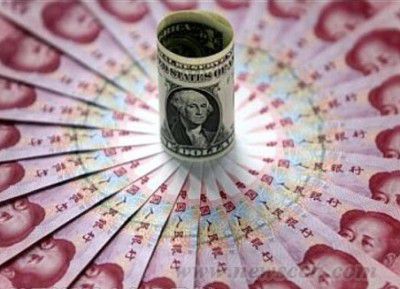From rejecting RMB appreciation to rejecting depreciation
china.org.cn / chinagate.cn by Di Dongsheng and Chen Wentong, February 14, 2014 Adjust font size:
|
|
|
The Chinese government's attitude towards the yuan exchange rate has changed from rejecting appreciation to rejecting depreciation. |
The exchange rate of China's currency, the yuan, is expected to hit 6 against the U.S. dollar this year, analysts and investors say. Focusing on the specific figures is superficial. The RMB exchange rate issue can actually be divided into two sub-questions: whether the yuan was overvalued or undervalued, and whether the exchange rate will rise or fall.
In the first 10 years after China's accession to the WTO in 2001, the nominal exchange rate of the yuan against the U.S. dollar was actually undervalued. But at that time, China was reluctant to let its currency rise. Nowadays the yuan exchange rate is at a balanced or even overvalued level, and China refuses to devalue its currency. This change in attitude not only reflects the changes in the leadership's ideas, but also showcases China's different tasks at different development stages.
From an intuitive observation we can determine whether the yuan was overvalued or undervalued. A decade or so ago, when the Chinese went abroad, they took all kinds of daily goods with them, like toothbrushes and rice cookers, because things were too expensive abroad. Now when they go abroad, they buy all kinds of things before returning home. Their suitcases are filled with all kinds of goods, from electronics to clothing, shoes and medicines.
The exchange rate regime reform in 2005 has led to an internal devaluation and external appreciation of the yuan. Land and real estate prices have soared and commodity prices have continued to rise during the process. According to the law of one price, we can say that the RMB is overvalued. China's trade surplus to GDP ratio once peaked at around 10 percent. In 2013, China's trade surplus amounted to US$260 billion. Although this was a huge figure, the ratio to GDP has dropped to 2.8 percent, which is internationally recognized as being within a normal range. And taking into account the fact that many trade surpluses come from carry trade, the argument that the yuan is undervalued is clearly no longer true.
The Chinese government's attitude towards the yuan exchange rate has changed from rejecting appreciation to rejecting depreciation. Why has it changed so much? When China first entered the WTO, it was under huge employment pressure. The exchange rate reform in 2005 was a self-initiated, controllable and gradual process, partly because of the employment pressure in certain sectors. Policymakers made the yuan exchange rate against the U.S. dollar predictable to facilitate China's export trade.
Nowadays, the problem facing China's manufacturing industry has changed. Resource constraints and recruitment difficulties are becoming increasingly prominent. The gains from the development of low-end manufacturing (employment) cannot make up for losses (the consumption of resources). Therefore, the resistance to yuan appreciation from different domestic interest groups has been reduced. In fact, the majority of private export manufacturing companies on the southeast coast of China have said that the pressure of gradual yuan appreciation can be offset by investing in more automation to save labor costs and improve efficiency.
From a close observation of the dollar-yuan central parity rates we can see the People's Bank of China (PBOC)'s effort to make its currency stronger. What is the reason for this? From the governing philosophy embodied in the third plenum documents of the 18th CPC Central Committee, we can see that the Chinese top leaders believe that in order to unleash the full potential of the market, we need to remove the regulatory requirements and rules that unduly control prices and let the market play a bigger role. While these measures can help release new demand and investment, they will cause larger short-term inflation pressures. In this context, it is a good time to raise the exchange rate of the yuan, because the deflationary effect caused by its appreciation can help to ease domestic inflation.
Dr. Di Dongsheng is vice director and Chen Wentong is a research assistant at the Research Center for China's Foreign Strategy Studies, Renmin University of China.
This article was translated by Li Huiru. Its original unabridged version was published in Chinese.


